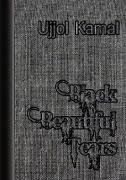Popular Science Monthly, Vol. 64 (Classic Reprint)
BücherAngebote / Angebote:
Excerpt from Popular Science Monthly, Vol. 64Even in the shortest sketch it is necessary to point out that a great part of the astronomical learning of the Moorish schools was due to Jews, and that it is to orientals and not to Europeans that we owe the earliest recognition of the fundamental truth that all sound pro gress in astronomy must be based on actual and continued observation of the places of the heavenly bodies, that theory must be based upon practise. It is usual to credit this insight to Tycho Brahe, and it is certain that his greatest claim to our gratitude is based upon a thor ough recognition of the fact that until observations have shown us exactly how the planets move we can form no adequate theories to account for their motions. But the astronomers of India and Persia in the ninth and tenth centuries thoroughly understood this funda mental notion, as did Ulugh Beg (1393 - 1449) at Samarkand, and they invented means to obtain observations of adequate accuracy and in sufficient number.The need for more observations and for greater precision was also fully realized by Purbach as early as 1450. Regiomontanus returned from Italy in 1471 to set up in Nuremberg an observatory for the especial purpose of correcting the Alphonsine tables, which Purbach and himself had found to be so defective a score of years earlier. Landgrave Wilhelm IV of Cassel and his astronomers were working in the same direction in Tycho's time. It is Tycho 's merit that he was the first in Europe to create instruments of sufficient power, and to use them with exceeding diligence over a long series of years. There was little knowledge in Denmark of What was doing in the orient. Tycho 's plans were made quite independently of the further east. At the same time Europe touched the orient closely, through Venice, and sent many of her sons to study at Moorish schools, and it is not conceivable that Tycho was entirely ignorant of the details of the work done, a century and a half before his time, in Samarkand.About the PublisherForgotten Books publishes hundreds of thousands of rare and classic books. Find more at www.forgottenbooks.comThis book is a reproduction of an important historical work. Forgotten Books uses state-of-the-art technology to digitally reconstruct the work, preserving the original format whilst repairing imperfections present in the aged copy. In rare cases, an imperfection in the original, such as a blemish or missing page, may be replicated in our edition. We do, however, repair the vast majority of imperfections successfully, any imperfections that remain are intentionally left to preserve the state of such historical works.
Folgt in ca. 10 Arbeitstagen




